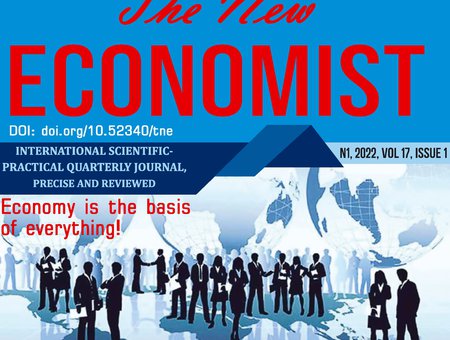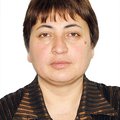Education and intelligence are core values in the 21st century. Unlike the 19th century (the age of steam) and the 20th century (the age of electricity and atomic energy), the 21st century is the age of knowledge.
The world around us today is rapidly changing - this applies to almost everything - technologies (digitalization, automation, robotization), society (network society), globalization (economic, technological, cultural), ecology. The speed of change is a distinctive trend of our time, which should be followed by social institutions, including education, as the basis for the dissemination of new technologies and knowledge.
Technology changes everything - prices change, business changes. E-government is being formed. Today, all smart governments, cities, villages, cars, pilots and autopilots are being built. Do you have the status of "smart" education?
REFERENCES
- The future of education and skills Education 2030 OECD 2018 https://www.oecd.org/education/2030/E2030%20Position%20Paper%20(05.04.2018).pdf
- World Declaration on Higher Education for the Twenty-first Century: Vision and Action 9 October 1998https://unesdoc.unesco.org/ark:/48223/pf0000141952
- Ministry of Science and Education of Georgia https://mes.gov.ge/content.php?lang=geo&id=12291
- Sustainable Development Report 2021The Decade of Action for the Sustainable Development Goals https://dashboards.sdgindex.org/profiles
- Future Skills for 2020 New Hope Report GEF & WorldSkills Russia https://futureskills2020s.com/ru
- Ken Robinson and Lou Aronica Creative Schools: The Grassroots Revolution That’s Transforming Education.. New York: Viking Press, 2015. 292 pagesJournal of Educational Research and Innovation https://digscholarship.unco.edu/cgi/viewcontent.cgi?referer=https://www.google.com/&httpsredir=1&article=1020&context=jeri
- Education for a Complex Society Educational Ecosystems for Social Transformation. Report Global Education Futures 2018 https://drive.google.com/file/d/0B9ZvF6mQ5FMbSTFKVmhodU5rNTNiTXpUZ2QwZktiR0pzSmJR/view?resourcekey=0-d3FGUmpdKpcCi8CgLVHqXQ
- Future skills What you need to know and be able to do in a new complex world https://worldskills.ru/assets/docs/media/WSdoklad_12_okt_rus.pdf?
- Pavel Luksha. "Educational innovations or why we need to change education"https://www.vneshtorg.biz/index.php?option=com_k2&view=item&id=187
- https://unece.org/DAM/env/esd/strategytext/strategyinGeorgian.pdf
- https://www.vneshtorg.biz/index.php?option=com_k2&view=item&id=1875





